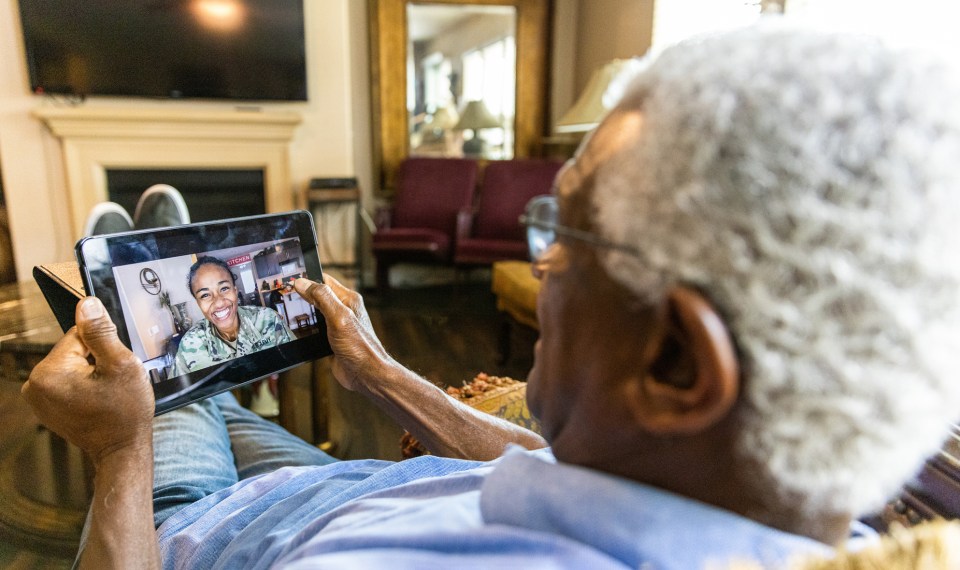You have had that nagging back pain for several years now and mentioned it to your primary care physician. In the past, over-the-counter medications seemed to work, but lately it interferes with your golf game and ability to hike on vacation. You schedule an appointment to see your physician, hoping to get an MRI scan of your back and maybe a course of physical therapy to set you back on track. However, after what seems like an all too brief encounter, you are told you aren’t getting any younger, ought to lose some weight and maybe you aren’t taking the medications as suggested.
You are upset, feel “blown off” and are no closer to a solution for your problem. What went wrong? You knew what you wanted going into the visit, so why did you come out empty handed.
Sound familiar? It should, as the Centers for Disease Control and Prevention report 884 million office visits each year, or about four visits per year for every person in the United States.
The internet is loaded with advice about always taking a list of all of your medicines, recordings of all your home blood pressure readings and a list of questions. All good advice, but I think there is something much more fundamental that determines success or failure for your doctor visit.
Perceptions and Expectations
The physician has an expectation of how they “should” be treated by the patient/family and how the patient “should” behave. Patients have similar preconceived beliefs about how the visit “should” go. “Shoulds” are dangerous!
Equally dangerous are unrealistic or unmet expectations that lead to stress, frustration and anger. The perfect patient experience is when the patient’s expectations are recognized and are met by their physician.
Physician Patient Expectation Disparity
I like an expression coined in 1994 by pediatrician R. Sagall. He referred to the mismatch in physician/patient expectations as Physician Patient Expectation Disparity or PPED. The patient enters the doctor’s office with an expectation of what will happen and the eventual outcome. As a patient, when you go the doctor, do you expect to:
- Receive antibiotics for what your doctor may believe is a common cold?
- Receive testing for your symptoms as opposed to watchful waiting?
- Obtain total relief of your pain?
- See the same physician each time?
- Walk after you have had a stroke?
The list can be never ending and tailored to whatever problem you have on that particular visit. How to do we bridge this gap and teach patients to clearly express their expectations and teach physicians to “ask and listen?”
Danger: Unmet Expectations
Physicians would love it if every patient could give a brief, clear history that gave them just the information necessary to make the diagnosis and prescribe the appropriate treatment. It might help if we asked every patient, “What do you expect from today’s visit,” or “At the end of your father’s rehabilitation stay what do you hope he will be able to do for himself?” We would be able to quickly determine not only the nature of the expectation but whether it is realistic.
As a patient or family member have you ever left an office visit or physician conference and felt:
- I should have …
- I didn’t get what I needed …
- I am not respected …
- No one cares …
- Other patients are more important …
They all arise from the mismatch of expectations and the reality of what happens. So, what can you do to avoid this trap?
Steps to Better Doctor Visits
- Ask yourself and tell your physician what you expect during that visit or hospitalization. This is not just a list of complaints, but what you hope will be the final outcome.
- Ask yourself, “Are these expectations realistic given the circumstances of the event? If I have symptoms of a typical cold, is it reasonable to expect antibiotics that won’t really help?”
- If you are angry with the doctor or their staff, ask yourself why? If you are mad that you had to wait, ask whether you were “worked in” and a wait is reasonable? Is there a patient with an unexpected serious problem who requires extra care? Next time it could be you.
- Focus on solutions, not excuses. Frequently the patient or doctor is explaining why they couldn’t do something rather than how to solve the problem.
- Take someone with you if it is a complicated problem. They can take notes and be an extra set of ears to remember what was said.
- Get copies of your lab work and MRI/CT scan reports. Do you know how to use the patient portal?
- Accept responsibility for the problem. Are you expecting the physician to solve a problem that requires at least 50% effort on your part?
- Recognize you and your doctor can only control the controllable, and you cannot eliminate uncertainty from your life.
Here’s to the expectation that your next doctor visit will be a better one.
The content of this site is for informational purposes only and should not be taken as professional medical advice. Always seek the advice of your physician or other qualified healthcare provider with any questions you may have regarding any medical conditions or treatments.




